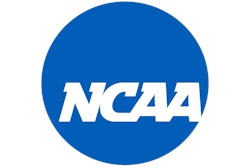
Missouri high school athletes will soon be able to cash in on endorsement deals once they sign a letter of intent to an in-state college.
As reported by The Kansas City Star, the sweeping new amendment to the state’s name, image and likeness law was signed by Republican governor Mike Parson last week and goes into effect Aug. 28. It will be one of the least-restrictive laws in the country governing how college athletes can score NIL endorsements, building on an ongoing arms race over athletics recruiting.
The law provides an incentive for athletes to stay in-state and attend one of Missouri’s colleges instead of leaving for another state. It’s a departure from previous policies, which barred high school athletes who had signed a letter of intent from receiving sport-specific endorsement compensation while still in high school, according to Kacen Bayless of The Star..
“I don’t think it’s a bad thing. I think it helps the University of Missouri,” said Eric Thomas, the head football coach at Lee’s Summit High School.
However, Thomas said he was concerned the law could lead to legislation that allows high school athletes to earn deals before they sign with a college. “There’s kids in California that are making all kinds of money off NIL right now through their high school career,” he said. “They’re making money as sophomores, juniors, seniors in high school. That’s where I start getting concerned that we start allowing that into the high school realm in the state of Missouri so I’m hoping this doesn’t open the door for that to continue to come down in Missouri.”
The Missouri State High School Activities Association has updated its policies to reflect the changes. Previously, high school athletes who had signed letters of intent were at risk of losing their amateur status if they capitalized on their name, image and likeness, Jennifer Rukstad, the MSHSAA’s executive director, told The Star. The new law also allows high school athletes to discuss potential NIL deals with Missouri colleges before signing.
As reported by Bayless, Leon Douglas, the head football coach at North Kansas City High School, said the new law creates some advantages as well as some “disadvantages in regards to team dynamics and how people handle it.”
“Social media, the cell phone, the accessibility of the cell phone, has now made the kid who was just a community hero, a local guy, a regional guy — now you’re a national guy,” Douglas said.
State Rep. Kurtis Gregory, a Marshall Republican who helped draft the legislation, said the high school provisions were a way to “close down the borders and keep Missouri’s best athletes in the state of Missouri.”
“That was something I saw from another state, that they put that in there, trying to get an advantage to keep their recruits home,” said Gregory, a former Mizzou offensive lineman. “Well, if they’re doing it in that state, then we’re gonna do it here.”
“This amendment will provide our schools and our current and future student-athletes with the flexibility needed to remain competitive, as the State of Missouri continues to lead the way in the modern-day evolution of intercollegiate athletics,” Mizzou athletic director Desireé Reed-Francois said in a statement, per The Star.
The law also allows college coaches and employees to be more actively involved in negotiating NIL deals to help student-athletes earn money through their own personal brands. Coaches or other athletics department employees have the right to “identify, facilitate, negotiate, support, enable” or assist a student athlete in negotiating an NIL deal. It also removes a previous prohibition that prevented coaches, such as Eliah Drinkwitz, Mizzou’s head football coach, from sitting in on a meeting between an athlete and a third-party NIL entity. “Basically Coach Drinkwitz could now be involved with the CEO for some big company in Columbia to secure a deal for one of the athletes,” Gregory said.
Moreover, the law opens a pathway for NIL fundraising to function through Mizzou’s Tiger Scholarship Fund, where donors can make tax-deductible donations directly to the fund which are earmarked for NIL deals. Previously, Mizzou used a separate collective that funneled donations to athletes under contract with the collective.
And following a defiant trend by states such as Texas, the law bars the NCAA from launching investigations into schools for engaging in NIL negotiations or punishing players for receiving endorsement money.
"Without federal regulations, the state laws have ushered in a Wild West of sorts where states are competing for a leg up," Bayless wrote. "Texas, Oklahoma, Arkansas and New York are among the states pushing similar changes to their NIL laws."
Gregory says competitiveness between college programs may impede any kind of federal rules. “Let’s say Alabama’s state NIL laws are better than the ones Louisiana has right now. Do you think the two senators from Alabama are gonna vote for something that would put them on the same playing field as Louisiana? I would say the same thing about the senators in the state of Kansas,” he said. “I really like where Missouri is positioned at in the NIL landscape right now and we’ll see where we go from here.”
“The Association has been clear and maintains that schools must adhere to NCAA legislation (or policy) when it conflicts with permissive state laws,” NCAA executive vice president of regulatory affairs Stan Wilcox wrote in a letter to member schools last month, according to The Athletic. “In other words, if a state law permits certain institutional action and NCAA legislation prohibits the same action, institutions must follow NCAA legislation.”
Gregory acknowledged that Missouri lawmakers employed “a little bit of gamesmanship strategy,” drafting the proposed NIL legislation toward the end of this year’s legislative session. He said he expects more states to follow suit next year. “Arms race is the best way to put it,” he said. “I feel like we’ve got something here to make us competitive and put us to the front and make us an attractive school to look at for not only Missouri’s best but the nation’s best.”
Senate minority leader John Rizzo, an Independence Democrat, touted the legislation in a text to The Star. “The majority of college athletes never play professionally,” Rizzo said. “I hope that they can finally get their worth and get their share of the wealth they’ve created.”





































